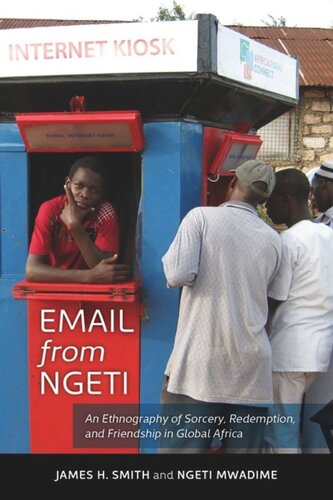

Most ebook files are in PDF format, so you can easily read them using various software such as Foxit Reader or directly on the Google Chrome browser.
Some ebook files are released by publishers in other formats such as .awz, .mobi, .epub, .fb2, etc. You may need to install specific software to read these formats on mobile/PC, such as Calibre.
Please read the tutorial at this link: https://ebookbell.com/faq
We offer FREE conversion to the popular formats you request; however, this may take some time. Therefore, right after payment, please email us, and we will try to provide the service as quickly as possible.
For some exceptional file formats or broken links (if any), please refrain from opening any disputes. Instead, email us first, and we will try to assist within a maximum of 6 hours.
EbookBell Team

4.3
8 reviewsEmail from Ngeti is a captivating story of sorcery, redemption, and transnational friendship in the globalized twenty-first century. When the anthropologist James Smith returns to Kenya to begin fieldwork for a new research project, he meets Ngeti Mwadime, a young man from the Taita Hills who is as interested in the United States as Smith is in Taita. Ngeti possesses a savvy sense of humor and an unusual command of the English language, which he teaches himself by watching American movies and memorizing the Oxford English Dictionary. Smith and Mwadime soon develop a friendship that comes to span years and continents, impacting both men in profound and unexpected ways. For Smith, Ngeti can be understood as an exemplar of a young generation of Africans navigating the multiplicity of contemporary African life—a process that is augmented by globalized culture and the Internet. Keenly aware of the world outside Taita and Kenya, Ngeti dreams big, with endless plans for striking it rich. As he struggles to free himself from what he imagines to be the hold of the past, he embarks on an odyssey that takes him to local diviners, witch-finders, Pentecostal preachers, and prophets. This is the fascinating ethnography of Mwadime and Smith, largely told through their shared emails, journals, and recorded conversations in the field. Throughout, the reader is struck by the immediacy and poignancy of coauthor Ngeti's narrative, which marks a groundbreaking shift in the nature of anthropological fieldwork and writing.